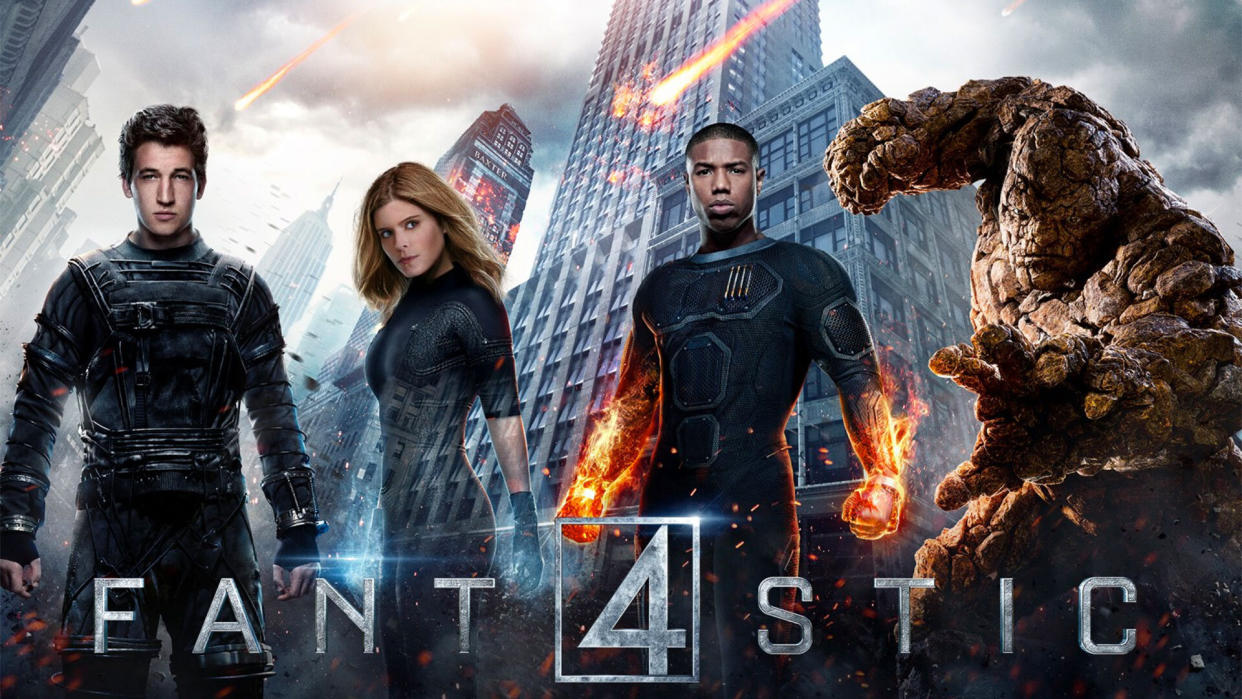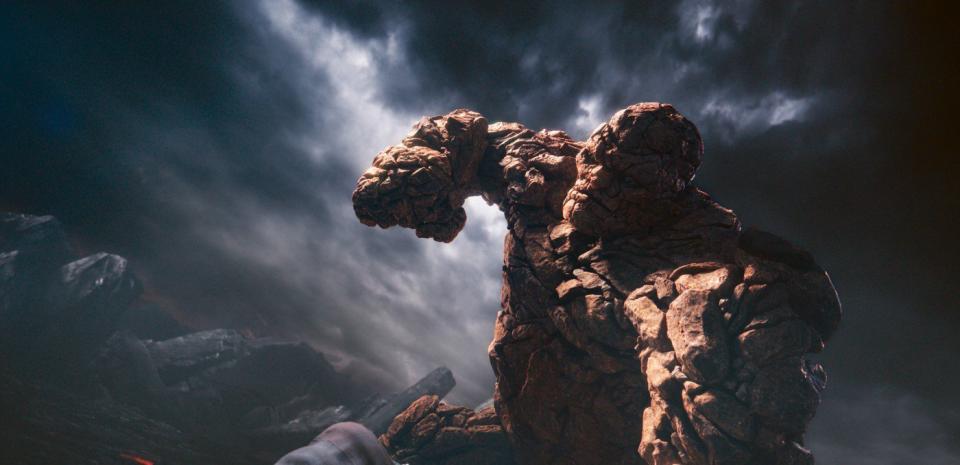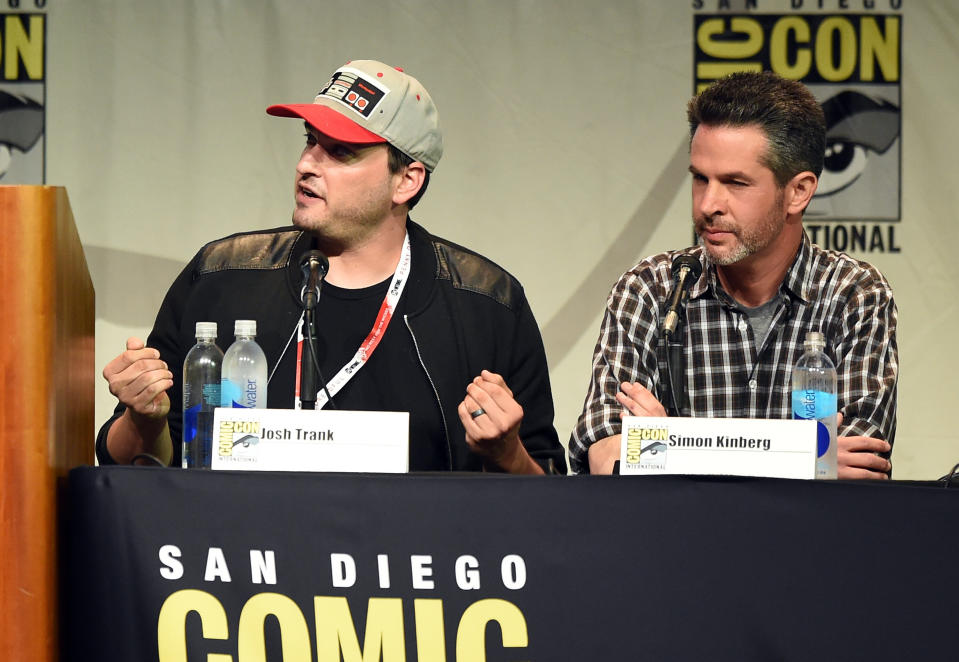'Fantastic Four' producers admit regrets over catastrophic flop

In the Marvel Comics the Fantastic Four are a beloved team and integral to the very fabric of that universe. However in the pantheon of superhero movies, they’re very much second-class citizens with a very checkered track record.
There have been four Fantastic Four movies to date: Roger Corman’s ultra low budget 1994 version that remains unreleased, Tim Story’s brace of family-friendly forgettable romps (featuring future Captain America Chris Evans as Johnny Storm) and Josh Trank’s catastrophic 2015 reboot which tanked with critics and audiences alike.
Filmmakers Simon Kinberg and Hutch Parker - whose most recent film X-Men: Dark Phoenix is in cinemas now - produced Trank’s film for 20th Century Fox which - by most accounts - was the result of a hugely turbulent shoot. As the Fantastic Four movie rights return back to Marvel Studios, both filmmakers now regret the way the doomed production was handled.
“Is there anything I would have done differently?” Parker surmised to Yahoo Movies UK. “Yeah, there are. There are lots of things I would have done differently.”

Kinberg, who co-wrote the Fantastic Four screenplay with Trank, concedes that taking a gritty, grounded approach to the source material was probably a misguided decision from the start.
“I think that the thing that [Fantastic Four] suffered from was... it was a sort of disconnect between the approach to the material and the actual material itself,” Kinberg says.
Read more: Toby Kebbell not interested in Fantastic Four sequel
“I think the Fantastic Four is a fun, playful, more comedic, lighter comic. And I think the approach was a darker, more serious, sombre movie. And while that seemed very radical, and revolutionary, I think those two things just didn't necessarily mesh.”
Like Dark Phoenix, Fantastic Four underwent extensive reshoots, after one Fox executive reportedly described an early cut as “a mess”.

Pickups were complicated by the busy schedules of the core cast (Miles Teller, Michael B Jordan, Kate Mara, and Jamie Bell), who were difficult to reassemble delaying the release by several months. Mara’s hair varied drastically between scenes thanks to her having to wear a wig for the reshoots.
Trank publicly disowned the film on Twitter just days before its release citing studio interference, amid accusations of “combative and abusive” behaviour that were levelled at the Chronicle director by insiders. He was subsequently dropped from directing a Star Wars standalone movie by Lucasfilm in the wake of the story, and Fantastic Four became a box office bomb taking just £132 million against a budget of £94 million.
While Parker abstained from addressing Trank’s behaviour directly, he alludes to people “suffering” during the filmmaking process.
“The truth is I came in very, very late to Fantastic Four, almost a month before production, and then we pushed back the start,” explains Parker, who was a Fox executive from 1995 until 2008 when he left as Vice Chairman to join New Regency,
“What I'd like to hope - as somebody who survived some really challenging productions, both when I was at the studio, and now as a producer - is that you learn each time and you become wiser about the ways in which you can ensure a great experience.
Read more: Deadpool the only character to live on in the MCU
“Because there's nothing to me inherent in the desire to make movies that says people should suffer. So you hope as a producer, I hope I can be better at casting the team and identifying the potential problem players, so to speak.”

Some of the greatest films of all time endured difficult shoots. Francis Ford Coppola’s Apocalypse Now nearly killed its lead actor and had its sets destroyed by a typhoon, while Steven Spielberg’s Jaws was beset with production troubles including a shark that wouldn’t function in water.
Both of those films were salvaged by monumental behind-the-scenes efforts from their directors and studios to become all-time greats, but Fantastic Four never stood a chance with the director and studio at odds with each other.
Read more: Why Dark Phoenix changed its ending
“The most important part of what a producer contributes, apart from financial management, [is] solving problems,” Parker adds.
“And so once you've assembled that team, it's on you when it goes awry. And I think, if I strive to do anything [different in the future] it’s probably to get better at doing that, being more intuitive about identifying where the potential problems will lie and dealing with those in advance so that they don't become crippling.”
Kinberg, who makes his directorial with Dark Phoenix, has plenty of experience working on troubled shoots.
“I've worked on movies where the process has been really, really difficult and the movies have been good,” Kinberg adds. “The first movie I ever worked on was Mr. & Mrs. Smith. And Doug Liman is famous for chaotic shoots. And we had all kinds of reshoots on that movie, I mean, really, really radical, massive reshoots on that film, and every day was pretty chaotic. And yet, I'm very proud of the product that we came up with.”
“[Films] are organisms, and they're populated by lots of different personalities,” concludes Parker. “And the challenges can kind of come from any front, it can come an actor or the director, or it can come from a producer, it can come from a member of the crew. They’re delicate.

“One of the things I learned when I shifted from the studio role into a producing role is how delicate the ecosystem actually is. It's much more fragile as a creative environment than I ever understood when I was running the studio.
“And part of what I try to do as a producer is protect that space. So everybody can do their best work, because you're you're working really hard, you're working long hours, you're changing locations all the time, there's a tremendous amount of innate strain that comes on the movie.
Read more: The X-Men movies ranked
“And so anything you can do to lessen that burden seems to me to give really talented people a better canvas on which to paint.”
Fonzo - Josh Trank’s first film since Fantastic Four - is due in cinemas later this year. Starring Tom Hardy as Al Capone, it seems the director’s time in Hollywood purgatory is nearly over.
X-Men: Dark Phoenix is in cinemas now.

 Yahoo Movies
Yahoo Movies 

